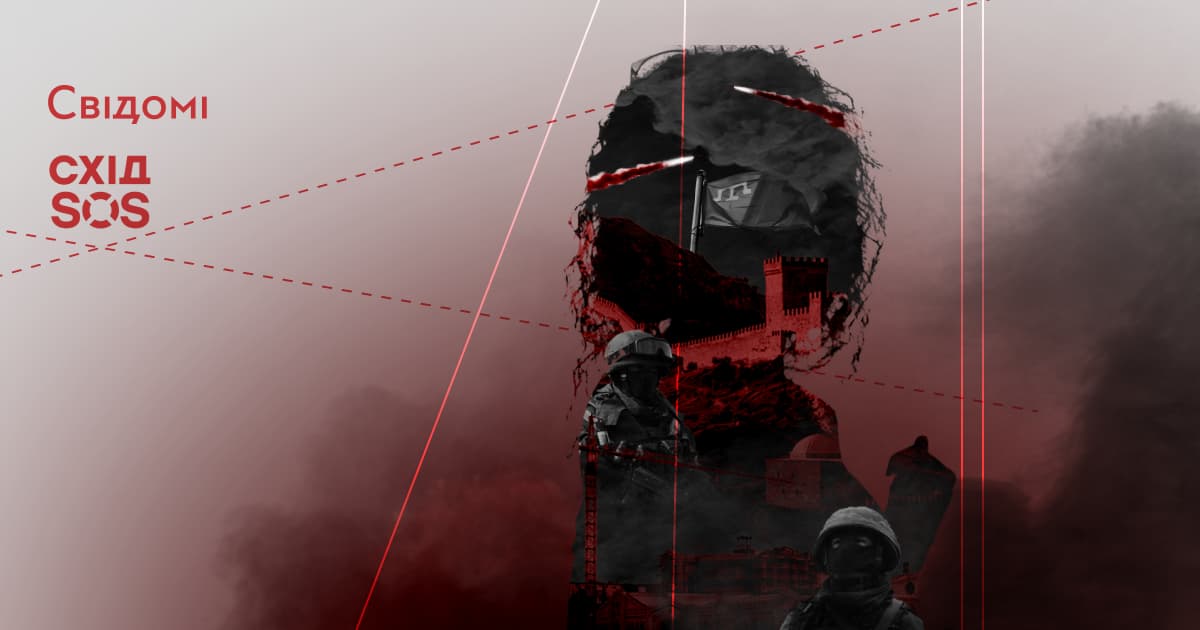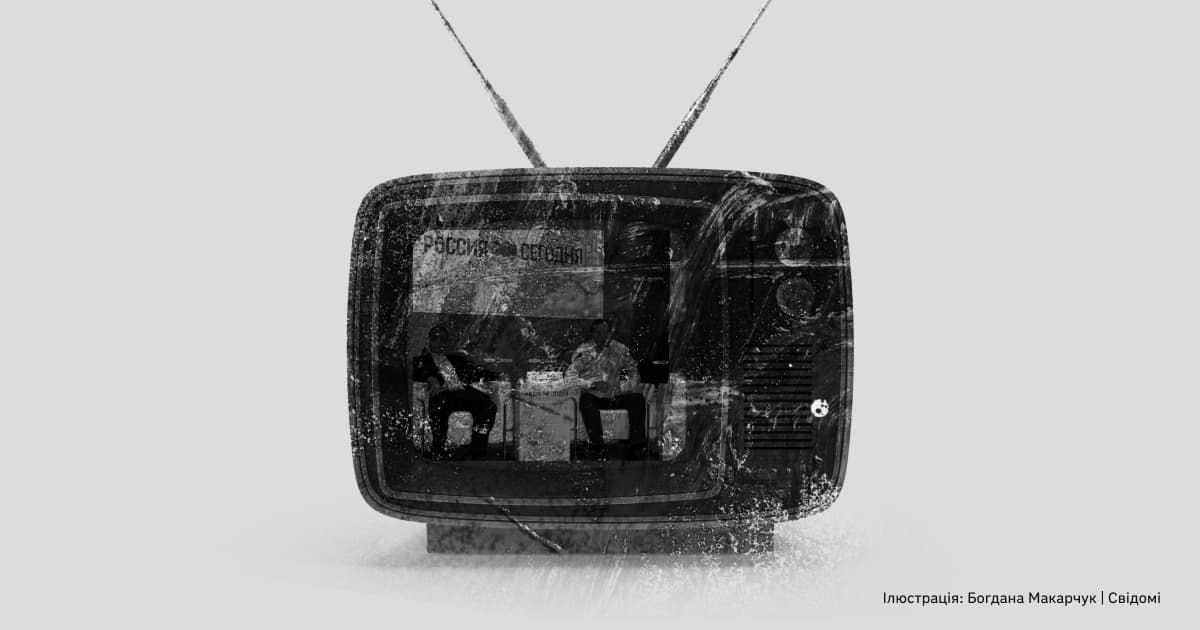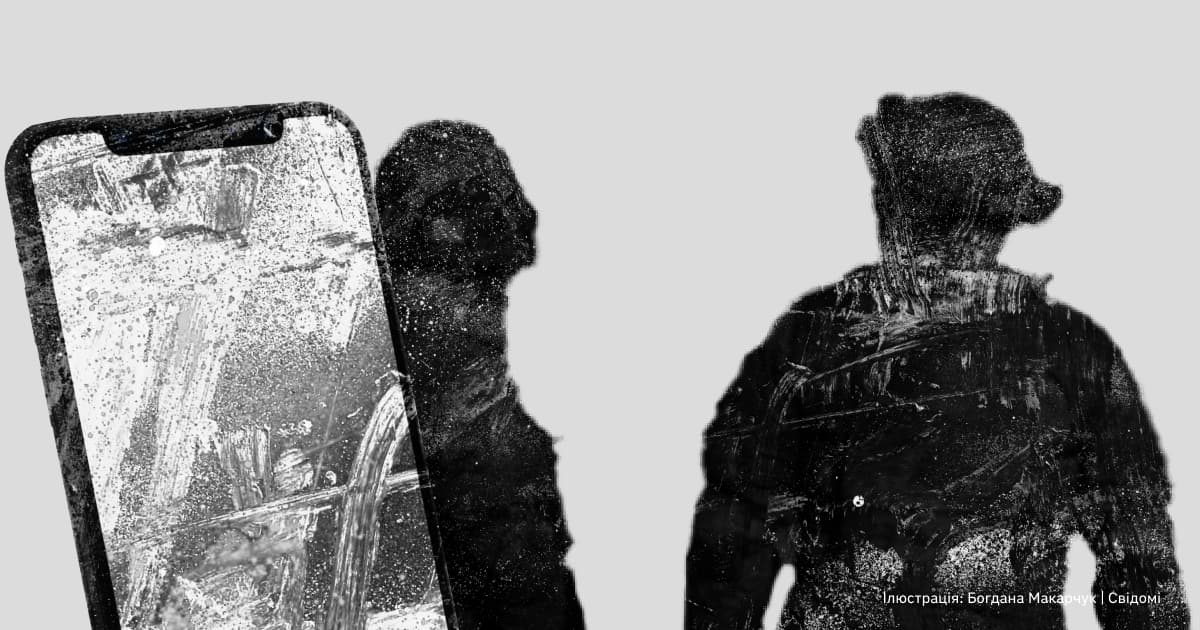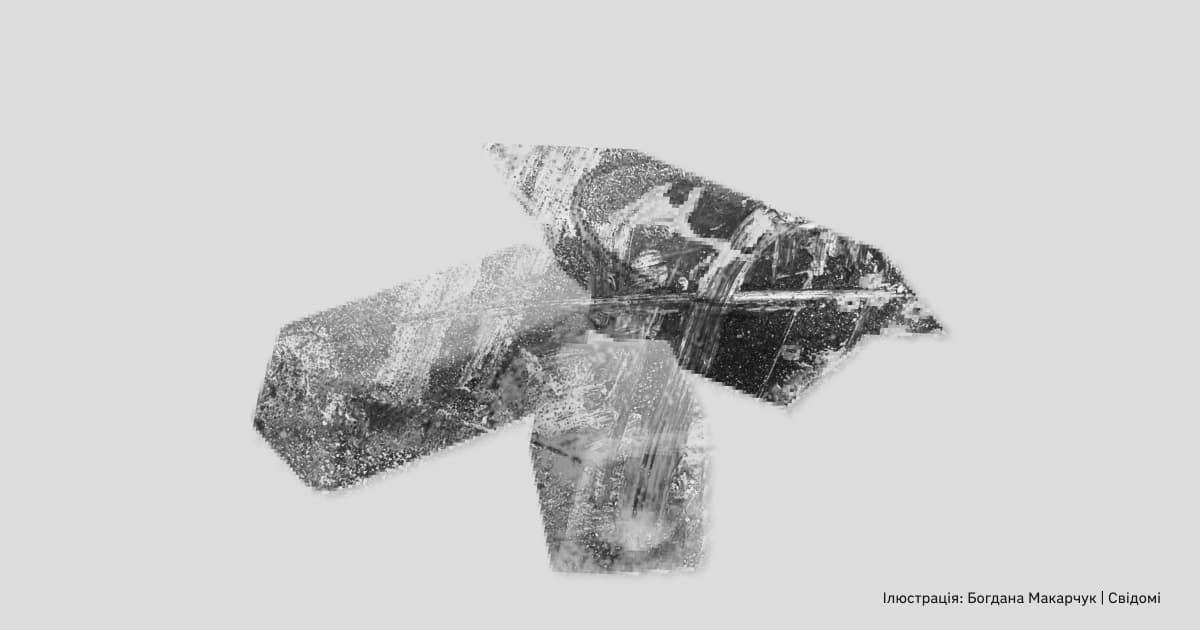"Everything was cold and lifeless during the occupation": Renata's story of spending half her life in the Temporarily Occupied Territories (TOT)
Олександра Чугунова

In 2014, when Crimea (Qırım) was occupied by the enemy, 11-year-old Renata's life seemed almost unchanged: she still went to school and never left her hometown of Yalta.
"I remember wearing yellow and blue ribbons and bracelets. For me, as a child, there were no changes, as if we were still living in Ukraine. Nobody talked about what had happened. Only later did I realise that we had exams that had never happened before," she said.
Renata is now 20 years old, almost 10 of them stolen by the occupation regime. A few months ago she decided to leave the peninsula and crossed the checkpoint in the Sumy region.
The girl's family never commented on the events of 2014: her mother was not interested in politics, and her grandmother liked Russian television and was influenced by propaganda. At the age of 17, Renata started dating a man called Roman, who helped her to learn the truth about the Russian-Ukrainian war and occupation.
Renata said that Crimea used to be overcrowded with tourists. People rented apartments and filled the whole city. At first glance, nothing has changed, but it is a completely different peninsula.
After the full-scale invasion, she thought there would be fewer holidaymakers. Renata worked in a hotel at the time. She saw with her own eyes the people who kept coming and talking about how the Russian authorities were 'helping' Ukraine. This created a dissonance — there was a war going on somewhere nearby and someone was taking a break and justifying the actions of the Russian army.
Renata admitted that she had wanted to move to a government-controlled territory for a long time, but had never discussed it with her family. She made the decision on her own and told her family at the last minute. One of her biggest disappointments is the lack of understanding and indifference of her parents and many other people in Crimea, including the events of 10 years ago and now.

"If more people had spoken openly about the war instead of remaining silent, my family might have understood how serious the situation was. It makes me sad that for so long I had no one to turn to for the truth. If I could have left earlier, I would have," she said with tears in her eyes.
It was her boyfriend who encouraged her to leave. During the 10 years of occupation, Roma never received a Russian passport. After February 24, 2022, he made regular donations to the Ukrainian armed forces, and in August 2023 he was noticed by pro-Russian activists. Then he left Crimea. In a year, Renata and Roman saw each other twice, the longest for a week. Roman has recently been diagnosed with cancer. He is being treated in Germany, and his beloved wants to join him.
"I chose to go to Ukraine to get a passport and then to see Roman in Germany. He helped me find someone to take me to the checkpoint. I spent almost two days travelling," Renata said.
Ukrainians returning through the checkpoint in the Sumy region undergo mandatory filtration by the Russian Federation and inspection by Ukraine. They are then met by representatives of charitable foundations and organisations. The Vostok SOS charity has been involved in evacuating people from the checkpoint for 14 months.
"We mainly helped with logistics: meeting them at the border, taking them to the verification and shelter and then to the train. Our partners approached us to solve individual cases, like Renata's. The girl has a birth certificate, but because of the occupation she has not received a passport. We helped her get her documents back and found her a place in a shelter in Dnipro run by the Vostok SOS charity foundation. This story is important because people without documents become a vacuum for the state, it is difficult to resettle them or provide them with the necessary assistance," said Yaroslav Korniienko, coordinator of the evacuation mission of the Vostok SOS charity foundation.
Renata was nervous before the filtration; she was very tired. Before the trip, she had prepared her phone for the inspection—she knew how to do it because she had discussed it with her boyfriend and the volunteers who helped her.

"The main thing is not to delete all the information and not to erase all the data. That would arouse suspicion. I deleted messages and photos that could indicate my pro-Ukrainian position. During the filtering process, I noticed that people were doing their job. The Russian border guards asked me a lot of questions about whether anyone was trying to turn me against Russia. They think that anyone who wants to leave the TOT has been exposed to propaganda. On our side, they asked me why I hadn't left earlier. When I explained that I was 11 in 2014, all the questions stopped," Renata said.
There is a widespread narrative in Russia that it is dangerous to return to Ukrainian territory. They are particularly frightened by the fact that they can be killed for using the Russian language and also claim that it was Ukraine that started the war.
"I have been in government-controlled territory for three months. I understand the language because I have been watching Ukrainian bloggers. I can read, but I lack the practice to communicate fluently. I feel safe in Ukraine. When I arrived, I felt warm. I realised that there was no longer any reason to be afraid. Everything around me seemed to have taken on vibrant colours. Under the occupation, everything was cold and lifeless," the girl admitted.
After being checked and crossing the border, Renata and others were taken to a shelter where they received help and a chance to rest. The Vostok SOS charity also provides services at the centre. Lawyer Alina Steblianko found out that Renata had no passport. The girl was taken to a temporary shelter for evacuees in Dnipro, run by the foundation. There they began the process of obtaining documents.
"The first thing I did was go to the ATB supermarket. I bought some sweets, Korivka, my favourite," she smiled.

After a few months of waiting, Renata was able to settle into her new city.
For a month I waited for the Security Service of Ukraine to check my documents, and then we did the identification procedure via videoconference with my parents using the WebEx application. In 2.5 months I got my passport. The whole process was accompanied by lawyer Alina, and I am very grateful to her," she said.
At the shelter, Renata contacted a psychologist from the charity foundation Vostok SOS, who helped her recover from her emotional distress. The girl also took care of several kittens that were born the day she arrived.
"I have had cats and a dog since I was a child. Until recently, I lived with a boyfriend, his mother and cats. I love animals and taking care of them. I even have several tattoos of cats. Now I'm trying to find homes for the kittens born here at the shelter. I have already found an owner for one cat," she said.
Renata is ready to move on to the next stage of her life. In mid-August, she plans to travel to Germany to be with Roman and visit her mother in Yerevan. Renata feels happy and calm because she now has the opportunity to build her future without fear.


